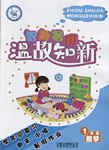题目内容
When you don’t  speak, you may be still communicating. It is true that you may not wish to say anything. But your very silence may show your wish to be left alone or to stay uninvolved, which is the message you want to send.
speak, you may be still communicating. It is true that you may not wish to say anything. But your very silence may show your wish to be left alone or to stay uninvolved, which is the message you want to send.
So it has been said that while we speak with our vocal organs, we converse with our whole bodies. All of us communicate with one anther nonverbally (非口头地), as well as with words. Sometimes we know what we are doing with the use of gestures such as the thumbs-up sign to indicate that we approve. But most of the time we are not aware that we are doing it.
Body language serves a variety of purpose. Firstly it can replace verbal communication, as with the use of gesture. Secondly, it can modify (修饰) verbal communication. Loudness and tone of voice is an example here. Thirdly it regulates social interaction: turn taking is largely governed by non-verbal signals. Fourthly it conveys our emotions. Finally it conveys our attitude towards ourselves and towards the people we are communicating with. This is particularly important for successful cross-cultural communications.
Every culture has its own body language. So in order to achieve a more successful cross-cultural communications, we heed not only what to say but also how to say it appropriately. Observation shows that a truly bilingual person switches his body language at the same time he switches language.
【小题1】The underlined word “converse” in the second paragraph can be replaced by ____.
| A.continue | B.complain | C.communicate | D.compete |
| A.the fact that body language serves a variety of purposes |
| B.the fact that body language can modify verbal communication |
| C.the fact that body language regulates social interaction |
| D.the fact that body language conveys our attitude |
| A.from culture to culture | B.from year to year |
| C.from time to time | D.from person to person |
| A.Verbal Language | B.Communication Skills |
| C.Ways to Communication | D.Body Language |
【小题1】C
【小题1】D
【小题1】A
【小题1】D
解析

 智趣暑假温故知新系列答案
智趣暑假温故知新系列答案 英语小英雄天天默写系列答案
英语小英雄天天默写系列答案 暑假作业安徽少年儿童出版社系列答案
暑假作业安徽少年儿童出版社系列答案阅读下面短文,掌握其大意,然后从34-48题所给的A、B、C、D四个选项中,选出最佳选项,并标在试卷的相应位置。
She watched her little girl at play through her window. Memories 34 back to her childhood.
She remembered that when she was a little girl, her mother would kiss her face every night when she was about to go to bed with her toys. 35 , she left home when 36 to college. Then she got married. Her work and family 37 her from visiting her mum, who is now living alone.
Thinking of this, she realized that she hadn’t 38 her mum for a long time. So she 39
the phone.
“Dear, I miss you,” there came her mum’s 40 . “Someone said that I should give you a
41 before you left home, but I didn’t. I want to kiss you now, but I can’t do it through a phone.”
“You kissed me every night when I was 42 ,” she said in a low voice.
“You’re right, honey. Those days were so nice. But I feel 43 now when looking through your bedroom window.”
Tears rolled down her cheeks. Not knowing how to comfort her, she hung up 44 .
She picked up her pen and wrote a letter to her mum.
Dear Mum,
Thank you for what you’ve done for me. There’s no greater love than yours. Mum, you may not know how many times I saw you watch me play. The 45 that you looked through is the same one that God looked in. He saw you by my bed each night when you’d tenderly tuck me in (把被子盖好). But since I was 46 at that time, I didn’t know how great this love was. It is not until I have my own 47 to tuck in, to watch through the window 48 I understand your love for me. We are the same now. So Mum, please don’t feel lonely; you know I’ll always be there.
| A. flooded | B. turned | C. left | D. entered | |
| A. Actually | B. Instead | C. However | D. Generally | |
| A. awarded | B. admitted | C. allowed | D. carried | |
| A. caught | B. protected | C. took | D. prevented | |
| A. heard | B. called | C. remembered | D. watched | |
| A. hung up | B. put up | C. picked up | D. set up | |
| A. voice | B. noise | C. shout | D. laughter | |
| A. letter | B. ring | C. chance | D. kiss | |
| A. back | B. home | C. away | D. out | |
| A. excited | B. terrified | C. lonely | D. upset | |
| A. in relief | B. in a hurry | C. in a way | D. in peace | |
| A. door | B. window | C. phone | D. home | |
| A. loved | B. tired | C. young | D. old | |
| A. toy | B. boy | C. mother | D. child | |
| A. that | B. what | C. who | D. which |